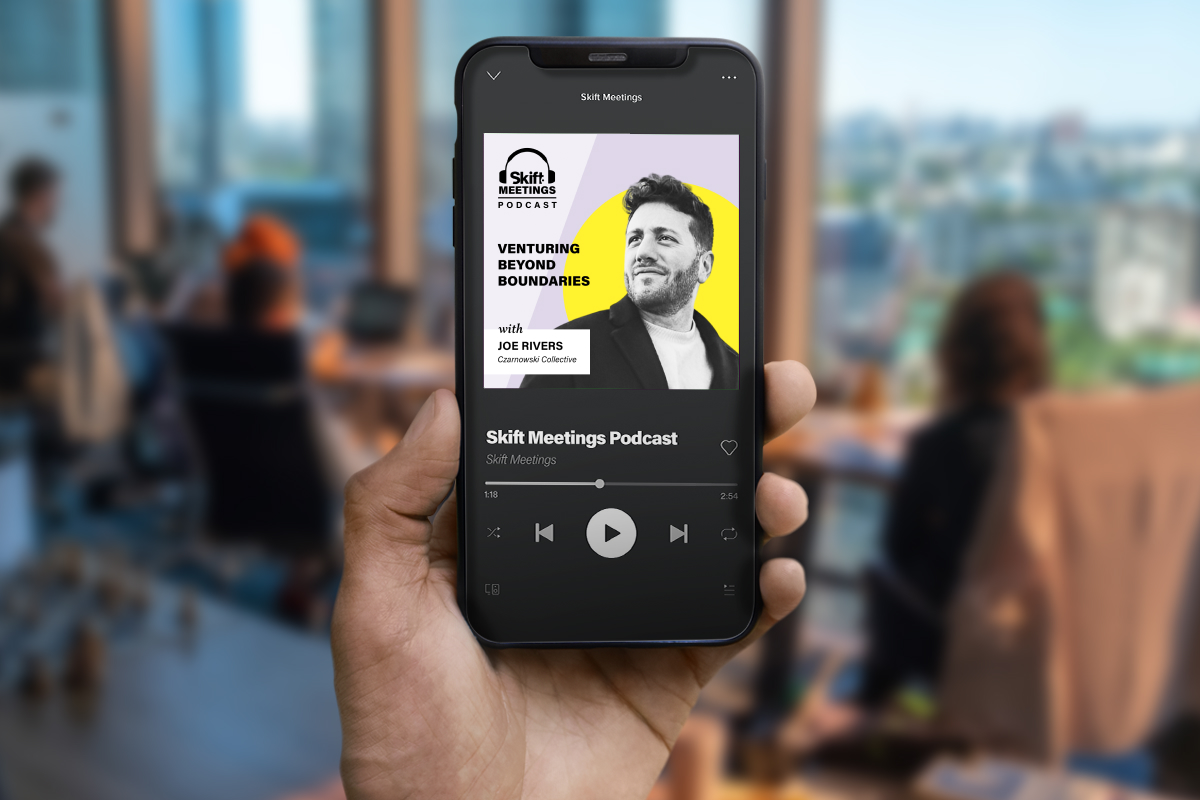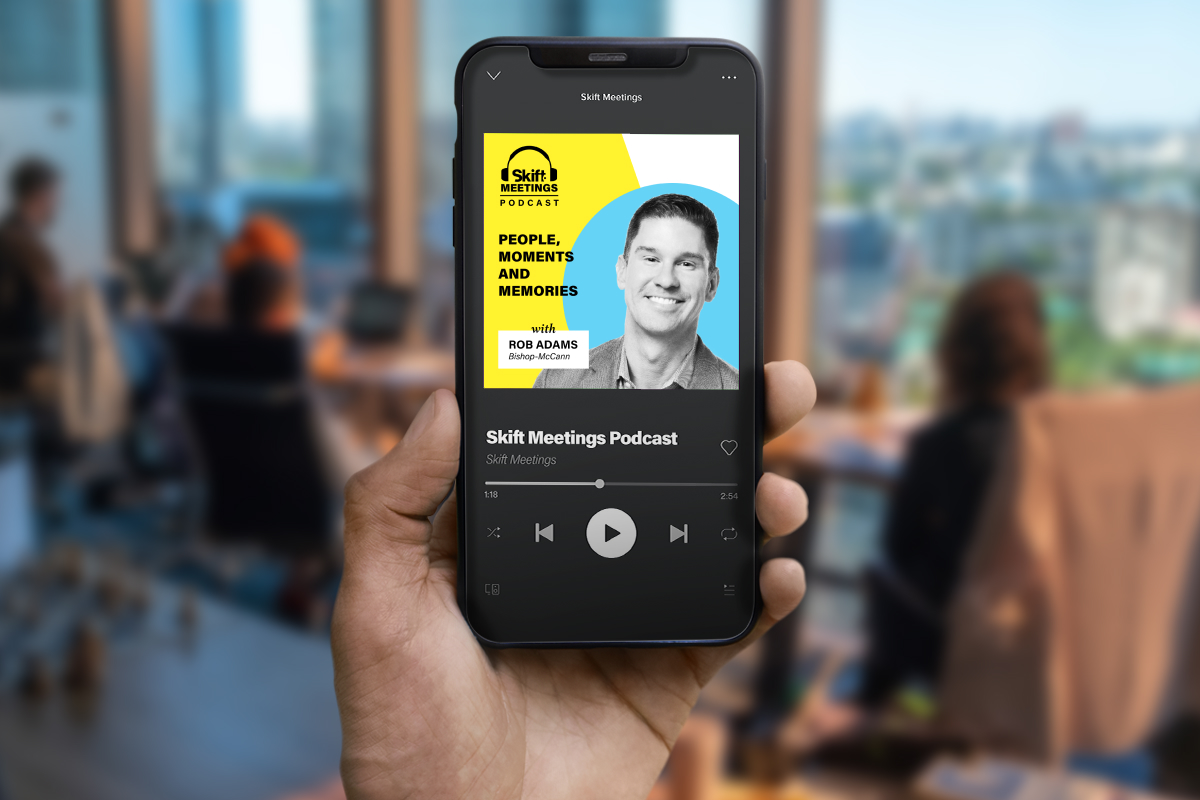Skift Take
In this episode of the Event Manager Podcast, we discuss the future of associations with Rob Eveleigh, managing director of Brightelm.
We start at the very beginning, back when Rob was 16 and starting his first job as doing silver service for weddings at his local hotel, which is the moment his love of events began. He enjoyed helping others enjoy their experiences, which led him to remain in the hotel industry for a number of years. He moved on to working with a temporary catering service, which exposed him to the corporate events world and inspired the thought that he wanted to move away from the hotel sector. Eveleigh’s career took various twists and turns throughout the years, including owning a tailoring business and returning to university for an MA in Conference and Event Management, before eventually starting Brightelm in 2018.
Subscribe to the Skift Meetings Podcast: Apple Podcasts | Spotify | Overcast | Pocket Casts | Google Podcasts | Amazon | RSS
Prior to launching Brightelm, the focus of Eveleigh’s career for a number of years had been within the associations area of the events industry and this is where Brightelm focuses its attention. Eveleigh explains that associations particularly appeal to him because they contribute to humanity’s advancement, by providing connections and furthering discussions. It is an area that helps others as opposed to helping to grow corporate profit which isn’t something that appeals to him.
Eveleigh also discusses various elements of being a small business owner. For example, in starting Brightelm he chose to move from London to Bristol, where he grew up. Moving out of the city hasn’t had any negative effects on his business, if anything he feels that there has been a positive one. It is cheaper to run a business outside of the city and one of the positives from COVID has been that establishing relationships online has become the norm. Additionally, as so many meetings are now taking place online, this has reduced the amount of travel required, and in fact, whilst the majority of clients may have their offices in London, their employees are often dispersed outside of the city.
Many small business owners struggle to take time off and fully unplug from their business, but Eveleigh was able to do this recently. He notes that this was only possible due to a combination of the team he has and his leadership style, which is focused on ensuring that his team feel supported in doing their jobs and empowered to make decisions year round and not simply when he is on vacation. Eveleigh believes that people, including his staff, should not fear making mistakes as this is when we learn the most. He talks about what his team achieved whilst he was away and how it allowed him the opportunity to unwind, noting the importance of prioritizing our mental health and taking clear, defined breaks to ensure we avoid burnout.
There are few projects that Brightelm run the entire event design and execution, instead they often focus where the client needs their support, for example with registration, speaker management or some other element. However, Eveleigh feels that the difference between a good event and a great one is when the event focuses on the positive outcomes they want to provide for their attendees, which as Eveleigh adds, can be as simple as ensuring that all attendees’ badges are ready for arrival.
Traveling to an event is stressful, and this has only grown since COVID, therefore it is especially important to keep attendees at the heart of what we do. He believes in always asking clients the question ‘What do you want attendees to get out of this event and experience?’, no matter how small the role Brightelm is playing, is an important question to ask and one we should all be asking ourselves.
Associations have been a large focus of Eveleigh’s career, even before he started Brightelm and has recently conducted some research into the future of the association sector. Eveleigh noted that a lot of studies within the event industry focused on the future of events and were seeking feedback and responses from event professionals, however Eveleigh felt that we should be looking at what is taking place in the rest of the world. Therefore, he looked at business travel, an area which has changed a lot since COVID, with many people preferring to avoid travel if possible, with the topic of sustainability also being close to mind for many. He notes that the majority of business travel is to attend meetings, whether they be small team meetings or large conferences. The trend he is noticing is that people are attending fewer meetings that require travel and are becoming more selective with those they do attend in person. They may still attend the event, but if they can do so virtually then they will. With this in mind, all event stakeholders need to ensure that what they are providing is exceeding the experiences provided by their competitors.
Associations in particular need to realise that the status quo from previous years is not going to continue to work for the next five, ten, or fifteen-plus years. There are competitors out there, even if they aren’t associations, which they need to be aware of and respond to, ensuring that they still provide the best content and experiences for their attendees. Eveleigh also touches on studies that show our attention spans are decreasing, how this could impact event programming, as well as the role of celebrity keynote speakers and if they are actually a marketing draw that bring attendees to the event.
Eveleigh also touches on event tech, noting that many of those that grew in unsustainable ways are not struggling, adding that those which aren’t solutions focus may cease to exist in the coming years. Thinking into the future, he would like to see event tech focus more on the event planner, as it is currently focused on the attendee experience. For example, Eveleigh argues that many event platforms have a variety of different features for the attendees to use whilst an event is taking place, however the time it takes to actually access the event can be lengthy, which, if they log-in as the session starts, can result in them missing some of the content.
He also argues that too much of event tech is distraction and it can be difficult for event planners to manage and minimize these distractions. What Eveleigh would like to see is companies specializing in one area and developing it to a high standard as opposed to trying to cover all elements of the tech experience. This would require organizations to work together, collaborate and integrate, but he believes that it would result in elevated product offerings.
Head to your favourite podcast app now to hear more from Rob Eveleigh, as well as catch up on all of our previous episodes.





